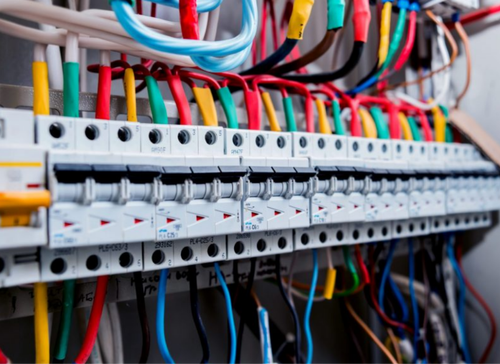Tailored BRE Electrical Solutions for Homes and Organizations
Wiki Article
Debunking Electrical Installation: Recognizing Codes and Regulations for a Lawful and Safe Arrangement
In the world of electrical installment, adherence to codes and laws is vital to make certain both validity and safety. The journey to demystifying electrical installment goes beyond plain experience with laws; it demands an extensive understanding of how to implement safe electric methods efficiently.Significance of Electrical Codes
The adherence to electrical codes is crucial in making certain the safety and integrity of electric setups. Electric codes offer as a collection of requirements and standards that dictate the proper layout, installation, and maintenance of electrical systems. These codes are established to decrease the risk of electric hazards, fires, and various other safety and security concerns that might emerge from defective electric work.
Moreover, electrical codes are consistently upgraded to incorporate new innovations, best practices, and precaution. Staying updated with these codes is necessary for experts in the electric industry to make sure that their work satisfies the most recent security requirements. Inevitably, the importance of electrical codes hinges on creating a safe and secure and efficient electric framework that profits both individuals and areas.
Key Laws for Safety
Several fundamental laws regulate the security standards in electric setups. One vital guideline is the National Electric Code (NEC), which supplies guidelines for risk-free electrical layout, installation, and examination to secure people and residential or commercial property from electrical hazards. The NEC covers elements such as wiring techniques, grounding, overcurrent defense, and tools installation to make certain a safe electrical system.An additional important policy is the Occupational Safety And Security and Health Management (OSHA) requirements, which concentrate on the security of employees associated with electrical installations (BRE Electrical Melbourne). OSHA regulations consist of demands for proper training, safety procedures, and personal protective equipment to stop work environment mishaps and injuries
In Addition, the International Electrotechnical Compensation (IEC) requirements aim to balance electrical installation BRE Electrical Solutions regulations on a worldwide scale. These requirements address concerns like electrical tools security, electromagnetic compatibility, and energy efficiency to promote harmony and security in electric installations worldwide.
Compliance with these key laws is necessary to make certain the safety and validity of electrical installations, securing both individuals and property from the risks connected with power.
Recognizing National Electric Code
Secret policies such as the National Electrical Code (NEC) supply important standards for risk-free electrical layout, installment, and assessment to make sure the protection of individuals and property from electrical hazards. The NEC, likewise called NFPA 70, is a comprehensive collection of requirements for electrical setups that are upgraded every three years. It is created by the National Fire Protection Association (NFPA) and is extensively taken on throughout the USA.The NEC covers numerous aspects of electrical job, including circuitry techniques, grounding, overcurrent defense, and tools installation. It aims to secure individuals and building by resolving possible dangers linked with electric systems. Conformity with the NEC is usually imposed by regional authorities having jurisdiction (AHJs), such as developing code officials and inspectors.
Comprehending the NEC is crucial for electrical specialists, designers, and assessors to guarantee that setups fulfill the needed safety demands. By adhering to the NEC guidelines, professionals can help prevent electric crashes and ensure the reliability of electrical systems in residential, business, and industrial setups.
Conformity With Neighborhood Building Regulations
Understanding and adhering to neighborhood structure codes is necessary for guaranteeing the security and conformity of electrical installments within a specific jurisdiction. These codes lay out particular requirements for electric installments, such as the type of wiring to be utilized, placement of outlets, grounding methods, and load capacities.
When it comes to electrical installations, failure to conform with local building codes can result in serious effects. Non-compliant installments might pose security dangers, enhance the risk of electrical fires, and lead to expensive penalties or legal issues.
Making Certain Safe Electrical Practices
Exercising rigorous adherence to established security procedures is vital in the field of electrical installments to reduce potential threats and make certain the wellness of individuals and residential properties. Security in electrical work incorporates numerous facets, starting with the appropriate training of workers involved in installation, maintenance, and repair. By prioritizing risk-free practices, electric setups can operate efficiently while lessening the likelihood of crashes or damages.Final Thought
In verdict, adherence to electric codes and laws is essential for guaranteeing the safety and validity of electric installations. Recognizing the National Electric Code and compliance with neighborhood building ordinance are important for a secure configuration. By following these guidelines and exercising secure electrical methods, people can protect against prospective hazards and make sure the proper performance of their electric systems.Report this wiki page